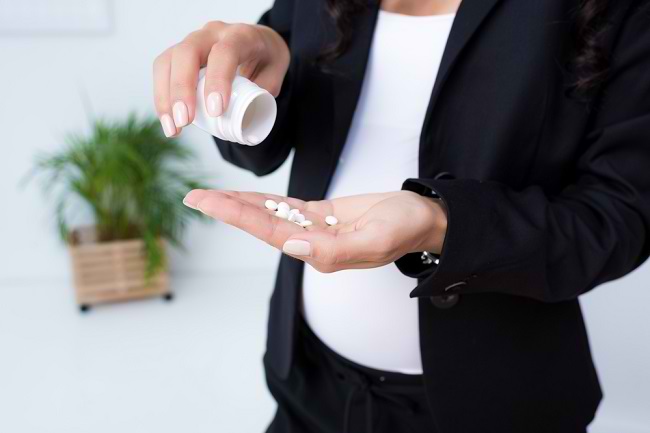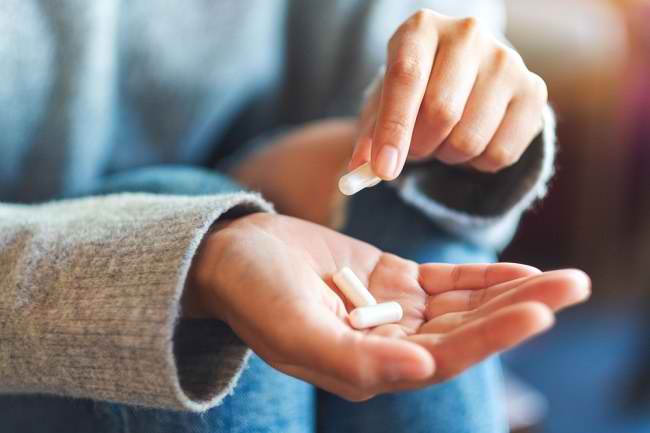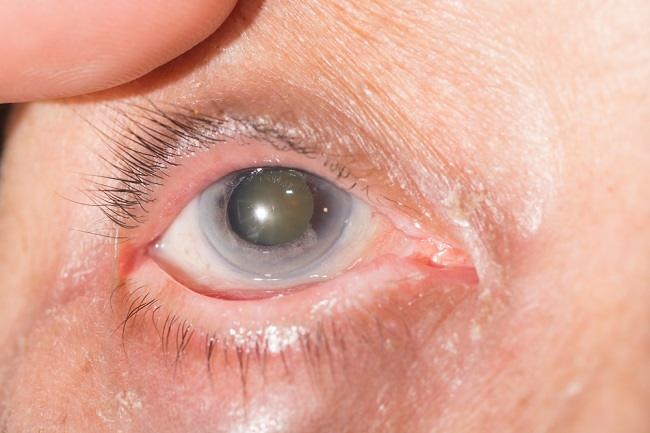Norfloxacin is an antibiotic drug used to treat diseases caused by bacterial infections, such as prostatitis and urinary tract infections. This medicine should only be used according to a doctor's prescription.
Norfloxacin is a quinolone antibiotic that works by inhibiting the growth and killing bacteria that cause infection. Please note, this drug cannot be used to treat viral infections, such as the flu.

Trademark Norfloxacin: Pyrflox
What's that Norfloxacin
| group | Quinolone antibiotics |
| Category | Prescription drugs |
| Benefit | Treating bacterial infections |
| Consumed by | Mature |
| Norfloxacin for pregnant and lactating women | Category C: Animal studies have shown adverse effects on the fetus, but there are no controlled studies in pregnant women. Norfloxacin may be used if the expected benefit outweighs the risk to the fetus. Norfloxacin is not known to be absorbed into breast milk or not. If you are breastfeeding, do not use this medicine without consulting your doctor first. |
| Drug form | Film-coated capsules |
Precautions Before Using Norfloxacin
Norfloxacin should not be used carelessly. Before using norfloxacin, you need to pay attention to a few things:
- Do not use norfloxacin if you are allergic to this medicine or to other quinolone medicines, such as ciprofloxacin, gemifloxacin, and levofloxacin.
- Do not use norfloxacin if you are on treatment with a class 1A antiarrhythmic drug, a class III antiarrhythmic drug, erythromycin, theophylline, an antipsychotic drug, an anticoagulant drug, a corticosteroid drug, or NSAIDs.
- Do not drive, operate machinery, or consume alcoholic beverages while you are taking norfloxacin, as this medicine can cause dizziness.
- Tell your doctor you have and have ever had depression, joint or tendon disorders, hypertension, myasthenia gravis, kidney disease, Marfan syndrome, Ehlers-Danlos syndrome, blood vessel disorders, heart disease, or a nerve disorder, such as peripheral neuropathy.
- Tell your doctor if you are planning a pregnancy, are pregnant, or are breastfeeding.
- Tell your doctor if you want to be immunized or vaccinated with a live vaccine, such as the typhoid vaccine. This is because norfloxacin can reduce the effectiveness of the vaccine.
- Tell your doctor if you are taking certain supplements or herbal products.
- Tell your doctor if you are about to undergo any surgical procedures, including dental surgery.
- Call your doctor right away if you have an allergic reaction to any medication after using norfloxacin.
Norfloxacin Dosage and Instructions
The dose and duration of use of norfloxacin will be determined by the doctor according to the type of infectious disease, the severity of the infection, as well as the age and health condition of the patient.
The following are general doses of norfloxacin for adults, based on the condition being treated:
Condition: Chronic bacterial prostatitis
- 400 mg 2 times a day, for 28 days.
Condition: Chronic urinary tract infection
- 400 mg 2 times daily, for up to 12 weeks. The dose can be reduced to 400 mg once a day, if the condition has improved in 4 weeks.
Condition: Urinary tract infection with complications
- 400 mg 2 times daily, for 10–21 days.
Condition: Uncomplicated urinary tract infection
- 400 mg 2 times daily, for 3 days, if infection is caused by bacteria coli, Klebsiella pneumoniae, or Proteus mirabilis.
- 400 mg 2 times daily, for 7–10 days, if infection is caused by other bacteria.
How to Use Norfloxacin Correctly
Follow the doctor's advice and read the information on the norfloxacin packaging before using it.
Swallow the caplet with the help of a glass of water. This medicine is best taken on an empty stomach, for example 1 hour before or 2 hours after eating or drinking milk.
Make sure that there is sufficient time between one dose and the next. Try to always take norfloxacin at the same time every day, so that the effect of the drug can be maximized.
If you forget to take norfloxacin, do it as soon as you remember, if the break with the next consumption schedule is not too close. If it is close, ignore it and do not double the dose.
Take all the doses prescribed by the doctor even if your condition feels better. This is important to prevent the recurrence of bacterial infections. If the condition does not improve after the drug wears off, consult a doctor immediately.
While using Norfloxacin, patients will be asked to visit the hospital regularly so that the doctor can monitor the patient's condition and response to the drug.
Norfloxacin can cause sunburn. Therefore, use sunscreen and closed clothing when active in the open air during the day, and avoid using UV lamps or doing outdoor activities tanning skin.
Store Norfloxacin in its package at room temperature. Do not store the medicine in a humid place and keep the medicine away from direct sunlight and heat. Keep medicine out of reach of children.
Norfloxacin Interactions with Other Drugs
Norfloxacin can cause drug interactions if used with certain drugs. The following are drug interactions that can occur:
- Decreased blood levels of norfloxacin when used with multivitamin and mineral supplements, such as iron and zinc
- Decreased effectiveness of norfloxacin when used with antacids, buffering didanosine, or sucralfate
- Increased risk of QT prolongation if used with class 1A antiarrhythmic drugs, such as quinidine, class III antiarrhythmic drugs, such as amiodarone, and other drugs, such as erythromycin and antipsychotic drugs
- Increased levels of theophylline in the blood
- Increased risk of bleeding if used with anticoagulants
- Decreased effectiveness of live vaccines, such as typhoid vaccine or BCG
- Increased risk of severe muscle disorders when used with corticosteroids
- Increased risk of seizures when used with NSAIDs
Norfloxacin Side Effects and Dangers
Some of the side effects that can occur after taking norfloxacin are:
- Diarrhea
- Nauseous
- Throw up
- Headache or dizziness
- Hard to sleep
Consult a doctor if the side effects above are bothersome or do not go away. See a doctor immediately if you have an allergic reaction to the drug and serious side effects, such as sudden bruising and bleeding, changes in the amount and color of your urine, loss of appetite, stomach pain, and jaundice.









